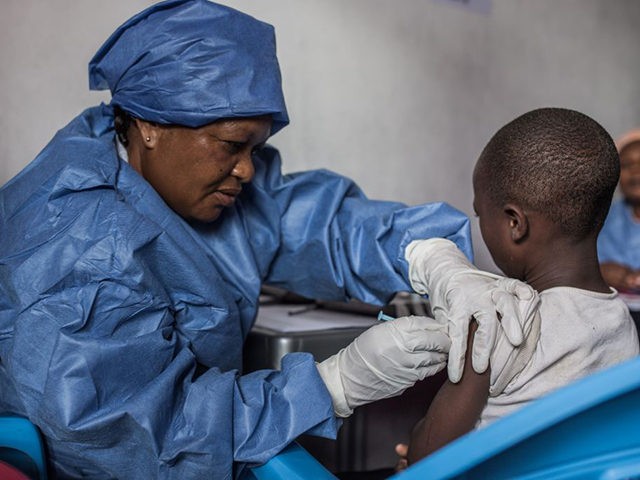The Democratic Republic of the Congo (DRC) this week declared the end of an Ebola epidemic in the eastern province of North Kivu, with health officials crediting the development to a recent Ebola vaccine campaign in the area.
“I am pleased to solemnly declare the end of the 12th epidemic of Ebola virus disease in North Kivu Province,” DRC Health Minister Jean-Jacques Mbungani said in a statement on May 3.
“Despite the security context and the COVID-19 [Chinese coronavirus] pandemic, the rapidity and efficiency of the response put in place by the government and its partners made it possible to defeat this pandemic in less than three months,” Mbungani added.
North Kivu’s latest outbreak began on February 7. It killed six people and infected a dozen others, but health officials this week credited an Ebola vaccine developed by Merck — a U.S.-based multinational pharmaceutical company — for containing the epidemic.
“The outbreak was contained using Merck’s Ebola vaccine, which was given to more than 1,600 of the patients’ contacts and contacts of contacts,” Medecins Sans Frontieres (MSF), known in English as Doctors Without Borders, said in a statement.
Scientists have genetically linked North Kivu’s latest Ebola outbreak to the province’s last Ebola epidemic from August 2018 to June 2020, which was the DRC’s largest ever.
“The recent resurgence is linked to the 2018-2020 epidemic in the provinces of North Kivu and Ituri, in which 3,470 people (including 28 percent children) were infected and 2,287 were killed,” the United Nations Children’s Fund (UNICEF) reported Monday.
The latest North Kivu Ebola outbreak emerged on February 4 in the city of Butembo after a woman died from Ebola whose husband had contracted the virus during the previous epidemic. DRC health officials collected a blood sample from the woman — who first fell ill with undiagnosed symptoms on January 25 — to test for Ebola Virus Disease (EVD) on February 3 “due to her epidemiological link with an EVD survivor,” the World Health Organization (W.H.O.) reported. The woman’s blood sample tested positive for Ebola after her death on February 4.
The Ebola Virus Disease (EVD) may spread “through direct contact (such as through broken skin or mucous membranes in the eyes, nose, or mouth) with … semen from a man who recovered from EVD (through oral, vaginal, or anal sex),” according to the U.S. Centers for Disease Control and Prevention (CDC).
“The virus can remain in certain body fluids (including semen) of a patient who has recovered from EVD, even if they no longer have symptoms of severe illness,” the CDC states.

COMMENTS
Please let us know if you're having issues with commenting.